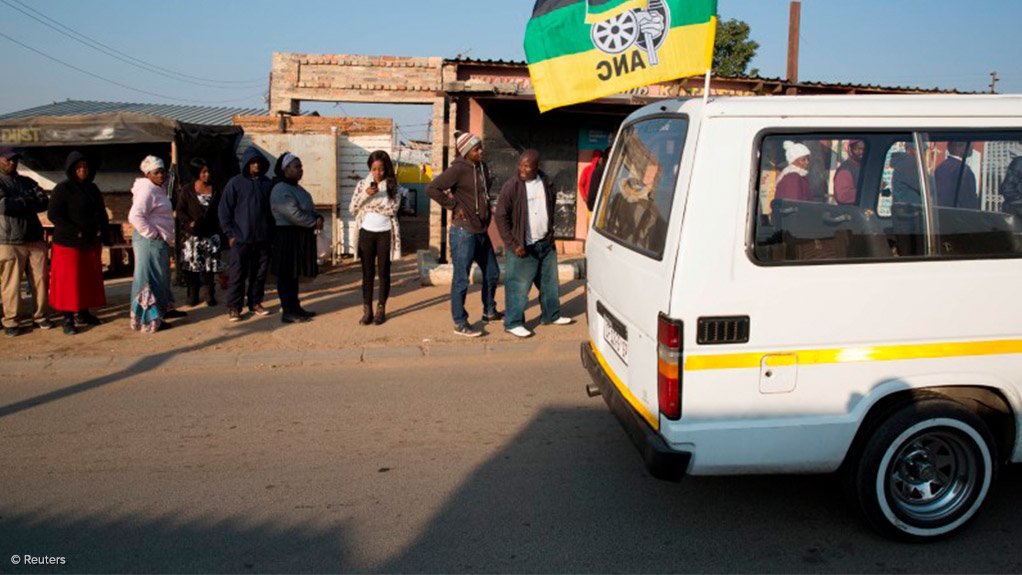/ MEDIA STATEMENT / The content on this page is not written by Polity.org.za, but is supplied by third parties. This content does not constitute news reporting by Polity.org.za.
Level 3 of the nationwide lockdown means that more and more of the country’s labour force returned to work on Monday, 1 June 2020. This also means a significant increase in commuters in need of safe and reliable public transportation to get them to and from their places of employment. Level 4 regulations included a restriction on the window of operation for minibus taxis and buses, a limitation on the capacity of each vehicle during operating hours and the compulsory wearing of masks.
When Transport Minister, Fikile Mbalula, announced the easing of transport restrictions under Level 3, the changes were welcomed. However, with the picking up of business, it has become clear that the public transport system cannot adequately, safely and mindfully cater for all commuters while the pandemic rages.
Under Level 3, the restriction on times of operation has been lifted, allowing taxis, buses, metered cabs, and e-hailing services to resume all-day operation. Taxis and buses are restricted to the same 70% and 50% capacity as under Level 4, with masks worn and frequent sanitisation encouraged. Metered cabs and e-hailing services also remain at 50%.
It is worth noting that under normal circumstances, taxis transport roughly 15 million commuters to and from work and school, daily. As more people return to work, it follows that taxis will remain the preferred mode of transportation, however, the 70% capacity limitation will have some difficult consequences. This is also true for those who use buses. For commuters, this means longer waiting times and queues before they can be transported.
The health hazard at bus and taxi ranks is common knowledge and extra vigilance and hygiene must be practiced under lockdown. By mid-May, the Western Cape Department of Transport had received more than 350 reports of capacity violations, 70% of which were in relation to taxis. It is concerning to think that these are only the reported cases, and in a single province.
While it is worrying that so many commuter vehicles are not adhering to regulations, there are reasons. As mentioned, restricted capacity means longer waiting times - and very few commuters can afford to be late to work and risk their employment. This toss-up between social distancing and financial security results in risks being taken.
Longer waiting times also result in commuters further risking their safety as they complete their journeys when walking to and from home in the dark, especially in areas where streetlights are not maintained or are altogether non-existent. On the other hand, taxi operators have been unable to meet their normal targets, directly affecting how much they earn and their ability to support their dependants. This drives operators to flout regulations, especially after a period of extremely low income.
One major concern is that Metrorail, which is the most affordable of the available public transportation options, has yet to resume its services. The beleaguered rail service was intended to return under Level 4 but after evaluation of its readiness, Mbalula said that it would not. Under Level 3, this remains the same. PRASA has indicated that it is still attempting to streamline safety protocols.
These include managing the capacity in carriages and hygiene on trains, as well as at stations. The absence of Metrorail has a direct impact on the volumes of commuters overwhelming road transportation, leading to overcrowding and the health and safety of millions being compromised. It is worth noting that Gauteng’s Gautrain resumed service at the beginning of Level 4 and continues under Level 3, servicing those that can afford it.
The burden on the public transport system will only increase once learners begin their staggered return to schools and more people resume work. COVID-19 is a highly communicable disease and the reopening of the economy, with safety risks such as these, is likely to lead to a flare-up in the communities occupied by these commuters.
Pandemics amplify inequality and COVID-19 continues to do the same in our communities. The poorest in our societies rely on public transport, and even more so where those are subsidised. A Metrorail monthly ticket costs significantly less than daily taxi fare. The harm and risk that the most vulnerable in our society are exposed to as they return to work are grave.
The irony in the transportation situation is that at present, it is safer to travel by air than it is to travel by road, once again highlighting the expansive disparities between those who have and those who do not.
The IFP acknowledges and welcomes the return to work for the millions who rely on employment for subsistence, but it is important to ensure effective safety protocols are in place and are adhered to as we navigate this new normal. The dire situation at PRASA and the knock-on effects it has had on the safety of our constituents is testament to the fact that it is the most vulnerable that are the most affected by poor governance.
Issued by IFP
EMAIL THIS ARTICLE SAVE THIS ARTICLE ARTICLE ENQUIRY
To subscribe email subscriptions@creamermedia.co.za or click here
To advertise email advertising@creamermedia.co.za or click here











